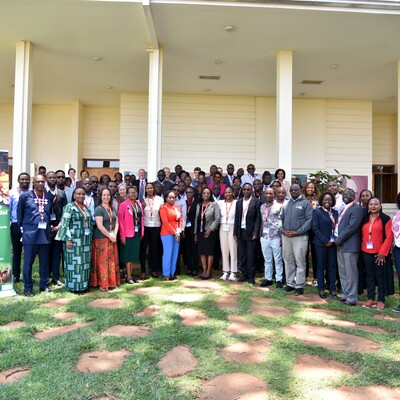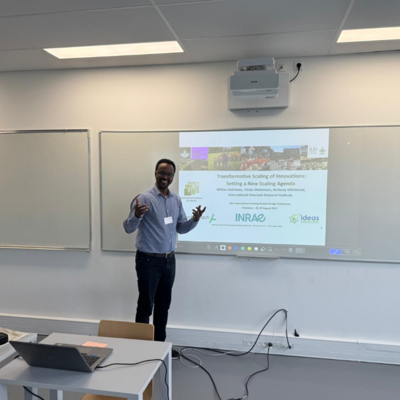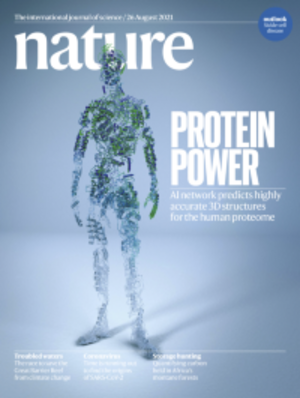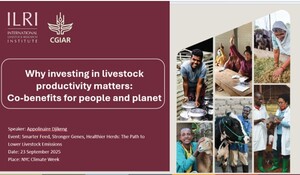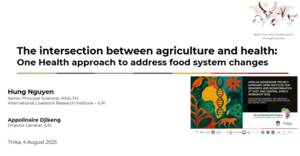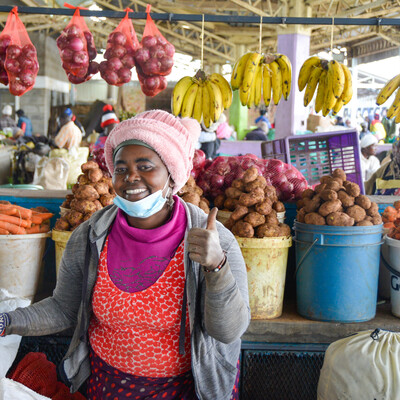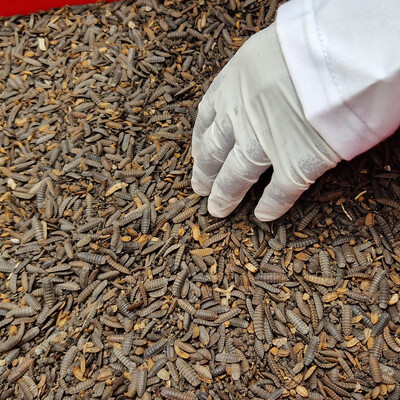
Ethiopia launches the first food system profile tool
The Alliance of Bioversity International and the International Center for Tropical Agriculture (Bioversity-CIAT) launched an Ethiopia Food Systems Profile Tool on 14 December 2022 at the Addis Ababa campus of the International Livestock Research Institute (ILRI).
The food systems profile synthesizes important information to provide a holistic overview of the essential components for the sustainability of the country’s food systems, based on the currently available data. The information in the profile will help decision-makers in the government and the private sector to make informed decisions on areas of intervention.
The tool is designed to quickly identify areas of weakness and hotspots for action within the country's food system so that targeted interventions can be considered. In addition, the food system profile compares Ethiopia's food system performance with neighbouring countries and those with the similar gross domestic product (GDP), as well as to broader global averages on given indicators.
Some of the food systems domains that the tool considers—including food production, storage, distribution, processing, packaging, retail, and marketing systems—are rated as very concerning compared to neighbouring countries, countries with similar GDP, and global comparatives. Food availability, quality, affordability, and safety are also addressed in addition to elements of consumer behaviour, and socio-economic characteristics.
During the launching event, Namukolo Covic, ILRI director general’s representative to Ethiopia and CGIAR regional director for east and southern Africa, indicated that since food systems have multiple actors, a visionary approach such as that of the Ethiopia Food Systems Transformation Pathway provides a way of aligning efforts. The given food systems profile can help the actors identify what they can do different or better. Key food systems actors and stakeholders were encouraged to coordinate on resource mobilization to make meaningful transformation efforts across food systems at different levels, from the national to the local level. ‘As diverse food systems actors, it doesn't matter where we are operating from in the food system, we have to align our efforts towards the common vision. And if your current actions do not add to the attainment of the common food systems transformation vision, it is time to take a different path,’ she concluded.
From left to right, Namukolo Covic, Mengesha, Belay Terefe, Chege, Christine, and other participants
Getachew Diriba, food systems advisor for the Ethiopia Agricultural Transformation Institute (ATI) agreed with Namukolo’s call for resource mobilization. ‘We need to understand what it takes to improve our food systems. Working coherently and synergistically is the way forward. We have to mobilize resources and funds in a coordinated way,’ he said.
The food systems profile methodology used by Bioversity-CIAT can also be used to develop sub-national food systems profiles. The resulting tool’s significance at the sub-national level for countries like Ethiopia, with diverse food systems across different agroecological zones, adds much value.
The three-year pilot project that developed the food systems profile tool was led by Bioversity-CIAT and funded by the Swiss Federal Office for Agriculture (FOAG). In addition to Ethiopia, the pilot project has also been implemented in Bangladesh and Honduras, starting in 2020.
Shahida Hussien is a communication and engagement officer at ILRI.






